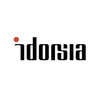
The Efficacy of MEDIHONEY® for Chronic Rhinosinusitis With Nasal Polyposis After Functional Endoscopic...
Chronic SinusitisNasal PolyposisThis study will assess the effectiveness of MEDIHONEY® sinus rinses (alone or in combination with intranasal corticosteroids) vs. intranasal corticosteroid sinus rinses on mucosal healing and polyp recurrence in the post-operative period following functional endoscopic sinus surgery.

A Study to Evaluate the Effect of ACT-774312 in Subjects With Bilateral Nasal Polyposis
Bilateral Nasal PolyposisThe study will evaluate the effect of ACT-774312 on the nasal polyps and will assess the safety and tolerability of ACT-774312 in the patients with bilateral nasal polyposis

Efficacy and Safety of Budesonide Inhalation Suspension for the Treatment of Chronic Rhinosinusitis...
Chronic Rhinosinusitis With PolyposisTopical and systemic steroids constitute the first choice in medical treatment for nasal polyps. This study aimed to evaluate the efficacy and safety of a short course of budesonide inhalation suspension via transnasal nebulization in the preoperative management of chronic rhinosinusitis with nasal polyposis. The second aim was to compare budesonide inhalation suspension with budesonide aqueous nasal spray and oral prednisone in nasal polyp treatment.

Buparid/PARI SINUS Versus Budes® Nasal Spray in the Therapy of Chronic Rhinosinusitis With Polyposis...
RhinosinusitisChronic PolyposisThe study should create data for the selection of a clinically relevant primary endpoint to assess the efficacy and safety of Buparid/PARI SINUS as compared to Budes Nasal Spray in the therapy of chronic rhinosinusitis (CRS) with polyposis nasi in adult patients. Ideally, the selected parameter should allow a correlation between an objective methodology and the clinical outcome of the study patients.

The Role of Induction Chemotherapy for High-risk Locally Advanced Nasopharyngeal Carcinoma in the...
Nasopharyngeal NeoplasmsThe purpose of this study is to determine whether Intensity-modulated radiation therapy (IMRT) combined inductive and concurrent chemotherapy with more intensive regimen (cisplatin and paclitaxel) is feasible and effective than current standard treatment for high-risk locally advanced NPC patients.

Elimination of Adjuvant Chemotherapy for Selected Stage II and III Nasopharyngeal Carcinoma
Nasopharyngeal CancerThis study evaluates whether some patients with nasopharyngeal carcinoma but with low risk of distant metastasis can be treated with only radiotherapy and concomitant chemotherapy but without additional adjuvant chemotherapy.

T-Lymphocytes in Treating Patients With Epstein-Barr Virus-Positive Nasopharyngeal Cancer, NPC
Head and Neck CancerPatients have a type of cancer called nasopharyngeal cancer. This cancer has come back or not gone away or is at high risk for coming back after treatment (including the best treatment we know for nasopharyngeal cancer). We are asking patients to volunteer to be in a research study using special immune system cells called EBV-specific cytotoxic T lymphocytes, a new experimental therapy. Most patients with nasopharyngeal cancer show evidence of infection with the virus that causes infectious mononucleosis, Epstein Barr virus (EBV), before or at the time of their diagnosis of nasopharyngeal cancer. EBV is found in the cancer cells of most patients with nasopharyngeal cancer, suggesting that it may play a role in causing this cancer. The cancer cells infected by EBV are able to hide from the body's immune system and escape destruction. We want to see if special white blood cells (called T cells) that have been trained to kill EBV-infected cells can survive in the patient's blood and affect the tumor. We have treated other patients with different EBV positive cancers and have had variable results. Some patients have had some response to the treatment. Some patients have been cured by the treatment. It is not possible for us to predict if this treatment will work for nasopharyngeal cancer. The purposes of this study are to find the largest safe dose of EBV specific cytotoxic T cells, to learn what the side effects are, and to see whether this therapy might help patients with nasopharyngeal cancer.

Docetaxel in Combination With Cisplatin-5-fluorouracil for the Induction Treatment of Nasopharyngeal...
Nasopharyngeal NeoplasmsCarcinomaThe primary objective is to estimate the Complete Response rate of docetaxel to the combination of cisplatin-5-fluorouracil (TCF) compared to cisplatin-5-fluorouracil (CF) in the Induction treatment of Nasopharyngeal Carcinoma (NPC). The secondary objectives are to determine: the safety of TCF in comparison to CF after induction treatment of NPC, the pharmacokinetics of docetaxel when added to CF, the Overall Response rate of TCF and CF on completion of induction and consolidation (chemo-radiotherapy) treatment of NPC, and to compare overall survival between TCF and CF.

Taxotere + Cisplatin in Nasopharyngeal Carcinoma
Nasopharyngeal NeoplasmsPrimary objective: To assess and compare the toxicities of patients with advanced NPC treated with concurrent cisplatin-radiotherapy with or without neoadjuvant Taxotere (docetaxel) and cisplatin. Secondary objective: To assess tumor control and survival

Double-Blind Randomized Placebo-Controlled Trial on Clinical and Biological Effects of Oral Corticosteroids...
Nasal PolyposisThis study is a double-blinded, randomized, placebo controlled, multi-center trial in which 120 subjects with nasal polyposis (NP) will be treated during 20 days with oral corticosteroids (OCS) in decreasing doses or oral doxycyclin (ODOX) or placebo. At each visit the clinical and the biological activity will be assessed by nasal peak inspiratory flow (nPIF), symptoms, olfactory test, endoscopic evaluation of nasal polyps, peripheral eosinophil levels and markers of inflammation IL-5, IL-5 receptor alpha, ECP, TGFβ1, IgE and specific IgE in serum and nasal secretion.
